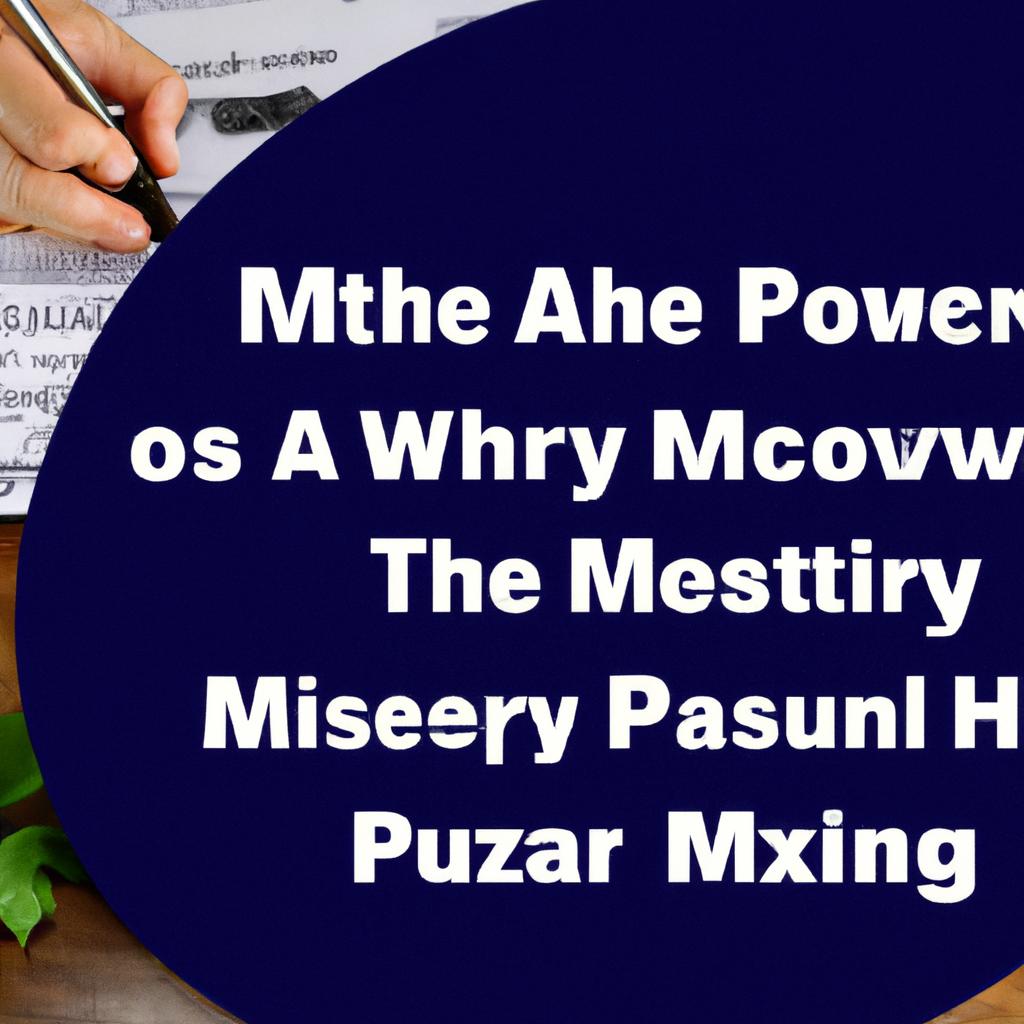Embarking on a probate hearing journey is akin to stepping into a legal dimension where history and the present intersect, and the outcomes can influence what lies ahead. This pivotal procedure determines the destiny of a deceased individual’s estate and resolves any disagreements, all under the vigilant supervision of a probate judge. Let’s explore the complex universe of probate hearings and demystify what truly transpires within the confines of the courtroom.
Grasping the Objective of a Probate Hearing
At a probate hearing, the court scrutinizes the deceased person’s will (if one exists) and establishes its legitimacy. This procedure entails validating the will’s genuineness and confirming that it complies with all legal stipulations. The court also designates an executor or personal representative to supervise the distribution of the deceased person’s assets as per the will’s terms.
A primary function of a probate hearing is to settle any disputes or challenges to the will. This could involve family members or other parties questioning the will’s legitimacy or disputing the asset distribution. The court listens to arguments from all parties and makes a decision based on the evidence provided.
It’s crucial to comprehend that a probate hearing can be a complicated and emotionally charged process. It’s advisable to obtain legal counsel to safeguard your interests and ensure the probate process proceeds without a hitch. With a clear understanding of a probate hearing’s purpose, you can confidently navigate this process.
Essential Elements of a Probate Hearing Process
During a probate hearing, several critical elements are addressed to ensure the deceased person’s estate is managed correctly. One of the primary facets of the probate hearing process is the will’s presentation. The court reviews the will to establish its legitimacy and confirm that it complies with all legal stipulations, including verifying that the will was appropriately signed and witnessed.
Another vital component of a probate hearing is the appointment of a personal representative or executor. This individual is tasked with managing the deceased person’s estate, including settling debts, distributing assets, and resolving any disputes that may emerge during the probate process. The court appoints a personal representative based on the will’s terms or state law if there is no will.
Furthermore, the probate hearing may involve identifying and valuing the deceased person’s assets. This process is crucial for determining the estate’s value and ensuring all assets are accurately accounted for. The court may also address any creditor claims during the probate hearing to ensure all debts are settled before distributing assets to beneficiaries.
Obstacles and Typical Problems Encountered During Probate Hearings
Probate hearings can be complex and challenging, often presenting a variety of typical issues that executors and beneficiaries may encounter during the process. Understanding these obstacles is vital for ensuring a smooth probate process and avoiding potential complications. Some of the most common obstacles and issues that may emerge during probate hearings include:
- Challenging Wills: One of the most frequent obstacles during probate hearings is when beneficiaries or family members challenge the will’s validity. This can result in protracted court battles and delays in asset distribution.
- Claims from Creditors: Another typical issue is when creditors assert claims against the estate. Addressing these claims can be time-consuming and may necessitate negotiation or court intervention.
- Conflicts Among Heirs: Conflicts among heirs over asset distribution can also occur during probate hearings. These conflicts can be emotionally charged and may require mediation or court intervention to resolve.
| Obstacle | Potential Solution |
|---|---|
| Challenging Wills | Mediation or Court Intervention |
| Claims from Creditors | Negotiation or Court Intervention |
| Conflicts Among Heirs | Mediation or Court Resolution |
Probate hearings can be a daunting and intricate process, but understanding the common issues and obstacles that may arise can assist executors and beneficiaries in navigating the probate process more effectively. By seeking legal advice and staying informed, individuals can ensure a smoother probate process and minimize potential complications.
Guidelines for Effectively Navigating a Probate Hearing
During a probate hearing, it’s crucial to be prepared and organized to smoothly navigate the process. Here are some guidelines to help you effectively manage your probate hearing:
- Assemble all required documents: Ensure you have all necessary paperwork, including the deceased person’s will, financial records, and any other pertinent documents for the court.
- Be on time: Arrive early for your hearing to avoid any unnecessary stress and to ensure you have ample time to settle in before the proceedings commence.
- Dress suitably: Dress in a professional and respectful manner to demonstrate to the court that you take the matter seriously.
- Honor the process: Adhere to the court’s rules and guidelines, and show respect to the judge and other parties involved in the proceedings.
By adhering to these guidelines, you can help ensure the probate hearing process proceeds more smoothly and increase your chances of a successful outcome.
In Conclusion
A probate hearing can be a complex and emotional process, but understanding what to anticipate can help alleviate some of the stress involved. From addressing contested wills to distributing assets, each probate case is unique and requires careful consideration from all parties involved. By seeking advice from legal professionals and being prepared for the proceedings, you can navigate the probate process with greater confidence and ease. Remember, every step in the probate hearing serves to ensure the deceased’s wishes are honored and their estate is managed with care and fairness.

Unveiling the Mystery: What Really Goes Down in a Probate Hearing?
Probate hearings are often portrayed as mysterious and complicated legal proceedings that take place after someone passes away. But what really happens in a probate hearing? In this article, we will demystify the probate process and shed light on what goes down in a probate hearing.
Understanding Probate
Probate is the legal process through which a deceased person’s estate is settled. This includes distributing their assets, paying off debts, and resolving any disputes that may arise. Probate is overseen by a court, and the probate hearing is where the court reviews the deceased person’s will, if one exists, and ensures that their wishes are carried out in accordance with the law.
What Happens in a Probate Hearing?
During a probate hearing, the court will typically cover the following steps:
- 1. Proof of the Will: The court will review the deceased person’s will to determine its validity. This may involve verifying that the will was signed and witnessed properly.
- 2. Appointment of an Executor: If the deceased person named an executor in their will, the court will officially appoint them to oversee the probate process.
- 3. Inventory of Assets: The executor will present an inventory of the deceased person’s assets, including real estate, bank accounts, investments, and personal belongings.
- 4. Payment of Debts: The court will ensure that any debts owed by the deceased person are paid off using their estate assets.
- 5. Distribution of Assets: Once debts are settled, the remaining assets will be distributed to the beneficiaries named in the will.
- 6. Resolution of Disputes: If there are any disputes over the will or the distribution of assets, the court will resolve them during the probate hearing.
Benefits and Practical Tips
There are several benefits to going through the probate process, including:
- 1. Legal Protection: Probate provides legal protection for the deceased person’s estate and ensures their assets are distributed correctly.
- 2. Resolution of Disputes: Probate hearings can help resolve any disputes that may arise between beneficiaries or creditors.
Here are some practical tips for navigating the probate process:
- 1. Hire an Experienced Probate Attorney: A probate attorney can guide you through the process and ensure everything is handled correctly.
- 2. Keep Detailed Records: Keep detailed records of all assets, debts, and communications related to the probate process.
Case Studies
Here are a few real-life case studies to illustrate how probate hearings work in practice:
| Name | Case Details |
|---|---|
| John Smith | John’s will was contested by his estranged son, but the court ultimately upheld the validity of the will. |
| Mary Johnson | Mary’s estate had to go through probate to resolve disputes between her beneficiaries over valuable family heirlooms. |
Firsthand Experience
Going through a probate hearing can be a complex and emotional process, but with the right support and guidance, it can also be a valuable way to ensure the deceased person’s final wishes are carried out. If you find yourself facing a probate hearing, don’t hesitate to seek legal advice and support to help you navigate the process smoothly.
probate hearings are important legal proceedings that help ensure the deceased person’s estate is handled properly and their assets are distributed according to their wishes. By understanding the probate process and knowing what to expect in a probate hearing, you can better prepare yourself for this important step in settling a loved one’s affairs.


